Women in STEM
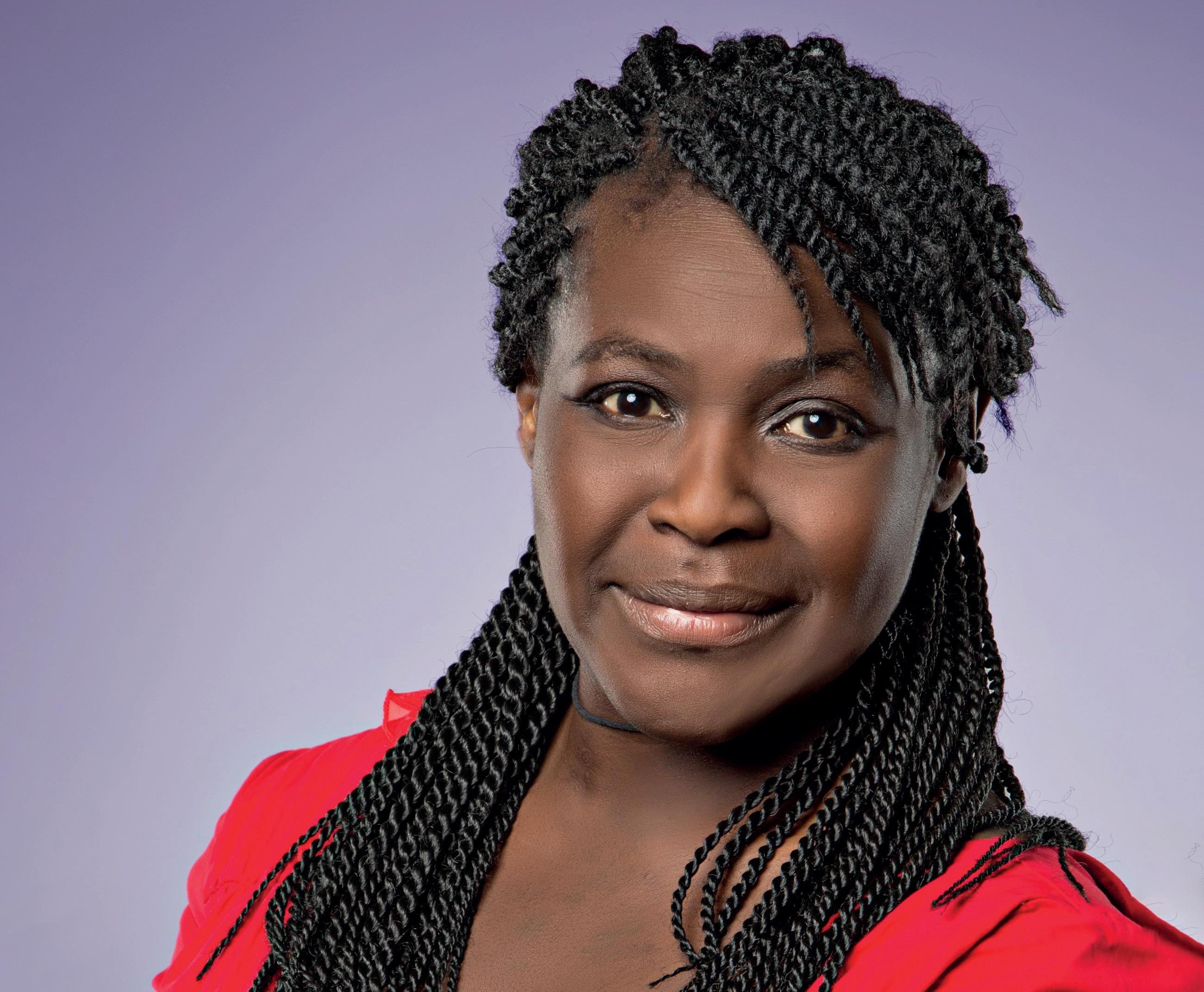
“The UK’s shortage of tech talent is estimated to cost £63 billion lost in GDP.”


Lexie Papaspyrou, Co-COO, Tech Talent Charter Page 06
Read more on Page 02
Dr

“More needs to be done to cultivate girls’ appetite for STEM.”
Dr Hilary Leevers, Chief Executive, Engineering UK Page 10
www.womeninstem.co.uk Q2 2023 | A promotional supplement distributed on behalf of Mediaplanet, which takes sole responsibility for its content Image credit: Lovelight Photography
Working on something so groundbreaking, which will change our understanding of the universe, gives me such a thrill.
Margaret Aderin-Pocock MBE Space Scientist and Science Communicator
Dr Maggie Aderin-Pocock MBE Space Scientist and Science Communicator
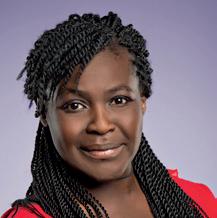
Why we need to be good role models to the future female space scientists

We have a society split between girls’ toys and boys’ toys. However, people should do what their heart desires, not what society tells them.
Ihave had the space bug since before I can remember. When I was five or six, my crazy idea was to go up into space, then I wanted to travel to the moon. I had these crazy dreams, but they inspired me to think big.
Inspiring more female space scientists
I’ve spoken to around half a million people about STEM (science, technology, engineering and maths) throughout my career. The challenge is many girls think ‘that’s not for me.’ I like to show them how varied my career in STEM has been and why we need more diversity. But it is a general problem, with research indicating that less than 15% of 12 to 14-year-olds are considering STEM careers.
I also like writing books. It’s challenging for me with my dyslexia, but I see the benefits. It is another way of getting information out there about the wonders of space.
Breaking stereotypes about space scientists
My work is very diverse. I work on TV programmes such as BBC Sky at Night, children’s programmes and, sometimes, even comedy. People don’t see many Black, female scientists so, through my
appearances, I try to break those stereotypical images of what a scientist looks like and does.
I’ve also worked on missions such as the James Webb Space Telescope — the largest space telescope ever built. This is definitely one of the highlights of my space science career. About 10,000 scientists across the world worked on it — I’m proud to have been one of them. Working on something so groundbreaking, which will change our understanding of the universe, gives me such a thrill.
Role models, flexibility and dreams
As a Black, female, dyslexic scientist, I have faced some challenges but usually found ways around them. I’ve also been encouraged by many people — family, friends and colleagues.
One of the driving forces in my life has been a desire to get out into space. The only time I wobbled on this idea was when my daughter was born because I needed to stay on Earth to look after her. Now, we talk about going to space together. That’s one of my crazy dreams — and we need them. I encourage everybody — especially girls — to have big, crazy dreams. By aiming high, we can achieve far more than we realise.
Senior Project Manager: Anokhi Shah anokhi.shah@mediaplanet.com
Kirsty Rigg Communications Lead, WISE
The emerging business benefits of a neurodivergent mind
As science accelerates and we reach new depths of understanding, the world has begun to open its eyes to the true strengths and capabilities of the neurodivergent mind — and the advantages it can bring to the workforce.
Rewind to the 1990s when the term ‘neurodivergent’ was coined and the association was that of negative abnormality. A condition in the mind which was to be treated. This somewhat unpalatable reputation seems to have persisted through the decades and was even noted in the Equality Act of 2010 as something that could qualify as a disability. Fast-forward to 2023, and things appear to have taken an unexpected turn.
Employers recognise neurodivergent minds
From ADHD to dyslexia, employers are now realising that the workplace can be greatly enhanced by minds that think differently. So much so that some major UK companies began actively recruiting neurodivergent employees for specific roles that suit certain untypical characteristics.
Take GCHQ (Government Communications Headquarters), for example. The British security agency directly appealed to women on the autism spectrum and with dyslexia for roles in cybersecurity.
Weapons manufacturer BAE (British Aerospace) Systems did the same, openly stating that they were looking for neurodivergent employees for roles requiring ‘fast pattern recognition’ and greater attention to detail. AWE (Atomic Weapons Establishment) has also
spoken openly about the benefits of hiring more neurodivergent people.
All of these organisations are members of Women Into Science and Engineering (WISE), a women-centred community interest company focused on getting more women into STEM. Oftentimes, these company aspirations for improved gender diversity are coupled with an active bid for neurodiversity — both in the name of inclusion and improved business outcomes.
Supporting
neurodivergent women in STEM
WISE CEO Kay Hussain believes that hiring neurodivergent employees can offer a competitive advantage. She says: “Things are changing when it comes to how neurodiversity is perceived and understood — by employers and the public in general.
“What may have been considered a disability is arguably an asset for many STEM roles. Research indicates data analytics, coding and mathematical-based jobs are just a few examples of where a neurodivergent mind may be a major business benefit.
“We must embrace this, from both a business perspective and as socially responsible, inclusive employers,” she concludes.
Senior Business Development Manager: Josie Mason Managing Director: Alex Williams

Head of Business Development: Ellie McGregor | Head of Print & Design: Thomas Kent Designer: Aimee Rayment Content Editor: Angelica Hackett O’Toole |
Head of Digital Operations: Harvey O’Donnell Paid Media Strategist: Jonni Asfaha Social & Web Editor: Henry Phillips Digital Assistant: Carolina Galbraith Duarte |
All images supplied by Gettyimages, unless otherwise specified
02 AN INDEPENDENT SUPPLEMENT FROM MEDIAPLANET WHO TAKE SOLE RESPONSIBILITY FOR ITS CONTENT WOMENINSTEM.CO.UK
@UKWomeninSTEM Contact information: uk.info@mediaplanet.com or +44 (0) 203 642 0737 @MediaplanetUK Please recycle
One of the driving forces in my life has been a desire to get out into space.
Encouraging more women to enter STEM to expand thought and capabilities
Women are increasingly being encouraged to take up roles within STEM as progressive companies embrace and implement approaches that lead to a more diverse and inclusive workforce.
Greater gender balance offers diverse approaches to problems, while policies that support women in the workplace are pivotal in retaining talent. Employees of specialty chemicals firm Infineum, Michaela Sommerova and Georgina Hallworth, share how this ensures career development in STEM (science, technology, engineering and mathematics) in an environment where there is equity in the opportunities that arise.
Opportunities for development in a welcoming environment
Michaela, who works in the component delivery department on projects to improve fuel economy, wanted to tackle challenging issues, particularly environmental ones and see them through to fruition.
Having joined two years ago with a background in synthetic organic chemistry, it also offered her the chance to play a part in the journey towards the decarbonisation of transport. “While I don’t believe there is one universal solution, I can contribute my skill set in developing novel components that support sustainability,” says Michaela, 27.
Another attraction is to experience different arms of the organisation and develop new skills as her interests change. “One of the best things about the company is the people I work with; they are knowledgeable, nice to work with; and I have learned a lot from them, which is something I value,” she adds.
Balancing responsibilities and believing in yourself
Michaela points to other benefits, such as family-friendly policies: “It is important to work for a company that respects that I have a life outside of work and gives me the support I might need in the future.”
That sentiment was echoed by Georgina, Strategic Planning Manager, who joined the company 15 years ago following her chemistry PhD. While acknowledging the barriers for women in STEM, she says: “The more you see people like yourself in the industry, the more you can believe that it is possible.”


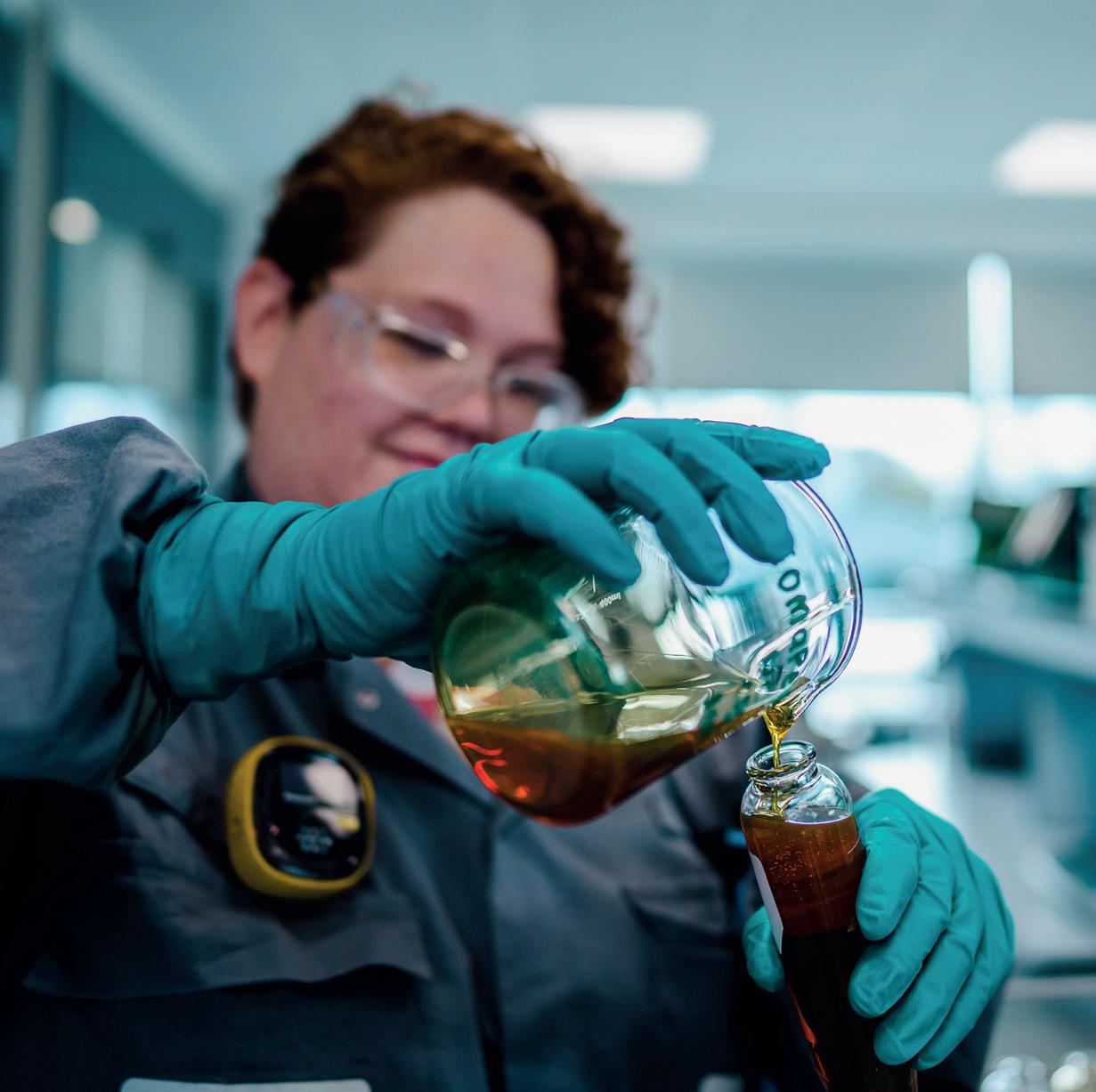
Discussing important issues for women at work Mother of two Georgina is active in the Women’s Affinity Group, which highlights issues specific to women. They address topics such as ‘imposter syndrome’ — where people doubt their talents — or make suggestions to enhance the experience of women returning to work after having children, for instance.
Georgina underlines the importance of making people feel they belong, with the company already embracing ‘belonging’ over and above its Diversity, Equity and Inclusion (DE&I) philosophy.
Inspiring women into the industry and diversifying thought
As Site Manager at the company headquarters and R&D base in Milton Hill, south Oxfordshire, Bobby Patel is part of the company’s community of STEM ambassadors who encourage young people and women to a career in the sector.
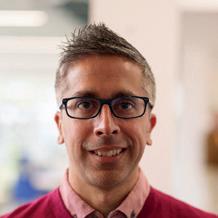
Having worked in STEM for 23 years, he is passionate about visiting schools and colleges to give talks and organise student work placements. One of his proudest moments came when a parent said that their daughter had opted for a career in chemical engineering as a result. “I will do whatever I can to create opportunities for women to be inspired to enter the industry,” says Bobby.
He feels it is important for women to have a voice in the sector and explains that there are equal opportunities for women at every level within Infineum — with 50/50 splits for interview selection and a female presence on interview panels.
Working with several women on his team, he adds: “Women can bring different ways of thinking to a traditionally male-dominated industry. This diversity of thought not only benefits the business but also supports aspects such as safety, which is incredibly important for a sustainable specialty chemicals company like Infineum.”

AN INDEPENDENT SUPPLEMENT FROM MEDIAPLANET WHO TAKE SOLE RESPONSIBILITY FOR ITS CONTENT 03 MEDIAPLANET
Read more at infineum.com
Paid for by Infineum
Bobby Patel Site Manager, Infneum
The more you see people like yourself in the industry, the more you can believe that it is possible.
WRITTEN BY Mark Nicholls
Michaela Sommerova Chemist, Infineum
Georgina Hallworth Strategic Planning Manager, Infineum
STEM sectors need to attract more women, says Lucy Kiernan. That means schools and companies must do more to break the bias that STEM careers are a male preserve.
E“ngineering is male-dominated, but that shouldn’t deter women from joining the sector — and it certainly won’t stop them from succeeding in it,” insists Lucy Kiernan, Industrial Systems and Co-Design Integrator (Manufacturing Engineering) at aerospace corporation, Airbus.
Peer support for career progression in STEM

“Sometimes, the biggest barrier to career progression is your own self-doubt,” she says. “Thankfully, in our teams, we get a lot of reassurance, feedback and support from our peers. That’s great because everyone needs to have self-belief and confidence in their abilities.”
After finishing her A Levels, Lucy joined Airbus as a Supply Chain and Logistics Apprentice in 2016. “At school, careers advisers were always pushing the university route,” she says. “Even so, I kept thinking: ‘What would be my next step after graduation?’ I talked to family members who joined Airbus apprenticeship schemes, and they encouraged me to attend an open day event. I went along and found out more about the apprenticeship route. It seemed a natural fit for me.”
Positive impacts of diversity in the workplace
In Logistics, Lucy was the only woman in a team of 100. “But
everyone was very welcoming, and it just wasn’t an issue or a barrier,” she says. Nevertheless, she is a champion for bringing more women into aerospace and currently leads the Gender Diversity Group at the Broughton site. This focuses on raising both the profile and awareness of gender diversity topics and the positive impacts they bring to the workplace.
Encouraging more women into STEM careers
Anything is possible in STEM, notes Lucy. For example, she admits she wasn’t a natural at maths and sciences at school, but that hasn’t held her back. “It shouldn’t be a barrier to a STEM career,” she says. “A year ago, I moved into the engineering function. That was daunting at first because I don’t come from a technical background, but since I’ve been in my current role, I’ve gained an appreciation for engineering.”
Now, we need to find and encourage the next generation of STEM leaders — and schools have a massive part to play in that. “We must continue to break the bias that STEM careers are not suited to females and their preferences,” insists Lucy. “There’s also a responsibility on those of us working in STEM companies to continue to share our stories and open up our doors to highlight the work we do and the opportunities we offer.”
Devon Sumner has always had a love of aviation. She reveals that it’s great to work in an industry she’s passionate about — and one that is supportive of women.
There are many exciting things about working in the aerospace industry, insists Devon Sumner, Head of Operations, A330 Wing Structures and Equipping at Airbus. “First of all, there’s the challenging nature of the work we do,” she says. “And the variety, too, because no two days are the same. Plus, there’s the pride I get in working for a company like this, especially when I see our products at an airport. I grew up next to an RAF base, so I always had an interest in aviation.”
Devon is now a senior member of the Airbus team, but her career didn’t have a straightforward beginning. At school, she had an aptitude for maths and science and was encouraged to study engineering by her maths teacher. Even so, she opted to study a more creative subject — product design — at university. A problem arose almost immediately, however. “I didn’t enjoy my first year,” she admits. “The fit just didn’t feel right.”
Having a range of opportunities with an aerospace career It was Devon’s mother who encouraged her to think again and apply for an Undergraduate Engineering Apprenticeship at Airbus. “So that’s what I did,” she says. “I left university, was successful in my application, and I’ve never looked back.”
She joined the company in 2011 and now has a First Class Honours Degree and is an Incorporated Engineer with the Royal Aeronautical Society. Her roles have included project and business management, aircraft design modification management and operational leadership.


Career and personal development encouraged in STEM “Career opportunities are genuinely endless,” she says. “You can do anything from engineering to HR to facilities management, so it’s all about what you make it. There’s also a big focus on — and support for — personal development, while progression and career development are actively encouraged.
“Plus, there’s positive investment in gender diversity topics to ensure that women are supported both through good policies, such as maternity leave and parental leave, and through a strong and sustained network of women who support and help each other.” Devon’s advice to any young woman thinking of a career in STEM is simple. “If a topic interests you and offers an exciting and fulfilling career, then don’t be put off. It might feel different from the sort of thing your friends are doing, but if it feels right — do it. You absolutely won’t regret it.”
04 AN INDEPENDENT SUPPLEMENT FROM MEDIAPLANET WHO TAKE SOLE RESPONSIBILITY FOR ITS CONTENT WOMENINSTEM.CO.UK
Why the biggest barrier to career progression can be your own self-doubt
How one woman made the most of endless career opportunities in aerospace
Lucy Kiernan Industrial Systems and Co-Design Integrator (Manufacturing Engineering), Airbus
Devon Sumner Head of Operations, A330 Wing Structures and Equipping, Airbus
SPREAD WRITTEN BY Tony Greenway
STEM graduate shares why she loves her career as an aerospace engineer
Don’t worry if you are confused about which STEM career is right for you, says Graduate Systems Engineer Aysh Yapa. Get some experience to see where your interests lie.
Aysh Yapa always loved science and maths at school and knew that she was destined to be an engineer. The problem was she had no idea which area of engineering she wanted to focus on.
She ended up in the aerospace sector “by chance,” she says. “I studied electronic, electrical and systems engineering at university as a way to keep all of my options open,” she reveals. “I knew it was a degree that can be applied to many different areas of engineering, including automotive and aerospace. I just had to find the right one for me.”
Aysh’s lightbulb moment came at university when she had a conversation with a lecturer who mentioned aerospace and Airbus. This led to her taking a year as a Systems Engineering Intern with Airbus in Filton, Bristol as part of her degree.
Getting hands-on experience for aerospace engineering career “I didn’t have a particular interest in aerospace at that time,” she admits. “But I thought: ‘Let’s see if this is a field that I could enjoy.’ That was a good decision because I immediately loved it and realised that, yes, I absolutely wanted to be an aerospace engineer. My advice to anyone thinking of a career in STEM would be to get some work
experience or get involved in STEM outreach activities or an immersion programme to see if it’s something you’d enjoy doing.”
Inclusion and mentorship opportunities in aerospace

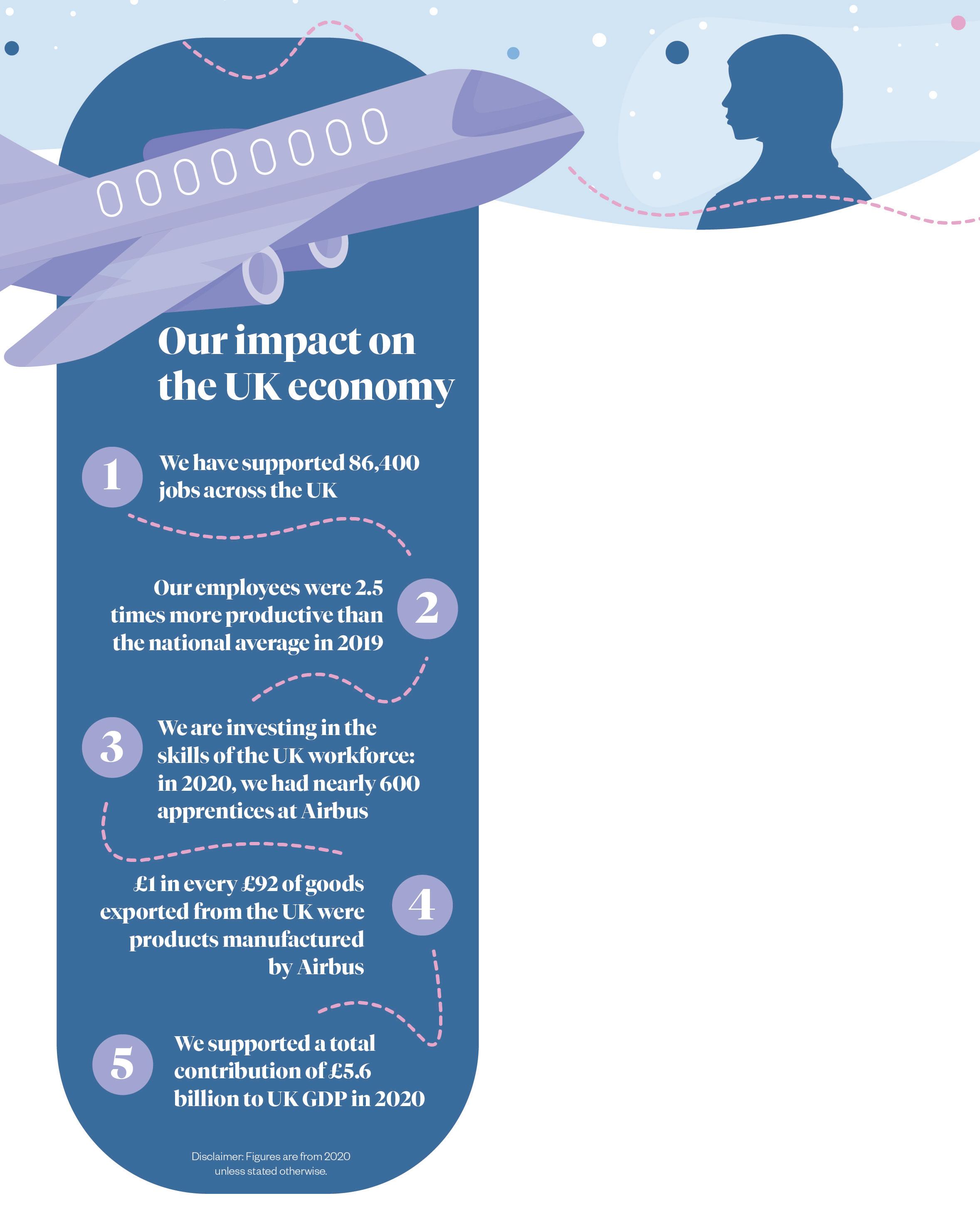
Following her graduation in 2021, Aysh returned to Airbus as a Systems Engineering Graduate. Alongside her technical responsibilities, she is involved with a range of extracurricular, STEM and outreach activities. She is particularly passionate about diversity and inclusion with an emphasis on empowering the next generation of female engineers.

In fact, as part of the company’s outreach activities, Aysh organises, resources, runs and participates in STEM and outreach activities for students in schools and universities with a focus on diversity and inclusion.
She is also a mentor of the EqualEngineers Pathways Programme, which helps engineering students from diverse backgrounds improve their employability skills. “As a mentor, I’m able to give advice to students about, for example, how to improve their CV, job applications and interview skills,” she says. “They get a glimpse into the engineering work they could be doing in two or three years. I really enjoy that.”
AN INDEPENDENT SUPPLEMENT FROM MEDIAPLANET WHO TAKE SOLE RESPONSIBILITY FOR ITS CONTENT 05 MEDIAPLANET
Aysh Yapa Systems Engineering Graduate, Airbus Operations Ltd
My advice to anyone thinking of a career in STEM would be to get some work experience.
Spread paid for by Airbus Find out more at airbus.com
Highlighting women engineers who take steps to keep us safe this 2023
According to research from Engineering UK in 2022, women make up only 16.5% of engineers. Women still struggle to break into what is perceived as a male-dominated industry.
During World War I, women engineers were welcomed into the profession and then pressured to leave the workforce at the end of the war to release jobs for men. These same women, from a small committee drawn from the National Council of Women, founded the Women’s Engineering Society (WES) on 23 June 1919. They work to resist pressure and promote engineering as a rewarding job for women.
How celebration for women in engineering went global
By 2013, WES had firmly established its reputation as an innovative organisation whose members work tirelessly to empower women in the engineering sector. As a way of celebrating 95 years of supporting women engineers, National Women in Engineering Day (NWED) was launched on 23 June 2014. The event was successful and continued for three years before it went international.
The year 2018 marked the first official International Women in Engineering Day (INWED) with 245 separate events from different countries such as Bolivia, Cameroon, Pakistan and New Zealand.
Each year, we choose a separate INWED theme to highlight the variety found across engineering and the crucial role played by women. For 2023, our theme is #MakingSafetySeen. Keeping people safe is a key part of engineering often unnoticed.
Highlighting women engineers who work in safety shows how careers in engineering give women purpose and support others. These events allow us to show the world the amazing women in engineering.

Highlighting women engineers who work in safety shows how careers in engineering give women purpose and support others.
Tackling barriers to change statistics for women
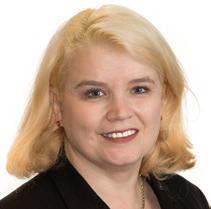
Despite the success of supporting women in engineering and encouraging more women to join the sector, statistics still show us that there is a long way to go. The barriers to women entering and staying in engineering are hard to break down.
A lack of flexible working, incorrectly fitting PPE and unequal pay are all issues that women engineers face today and need to be addressed. Our vision is an engineering industry that employs the diversity of the society it serves to solve the biggest societal issues of our time. Until this happens, we will continue working to support and promote women in engineering.
06 AN INDEPENDENT SUPPLEMENT FROM MEDIAPLANET WHO TAKE SOLE RESPONSIBILITY FOR ITS CONTENT WOMENINSTEM.CO.UK
Elizabeth Donnelly CEO, Women’s Engineering Society
Women in tech: what it’s like being a scrum master in national security
As a female scrum master in an engineering team in the tech industry, I am dedicated to helping my organisation keep the people of the UK safe from harm.

Like the thought of becoming president or an astronaut, the idea of working for the Government Communications Headquarters (GCHQ) — or any of the security agencies — seemed far-fetched when I was younger. But actually, these were self-imposed ideas. The reality is very different, and I made a commitment to myself when I successfully applied that I would pave the way for others that dared to dream big.
What is a scrum master?
I joined as a software engineer after university and had a stint in both non-technical and technical roles in the private sector. At the Agency, I quickly developed deep technical expertise, but I wanted a more holistic understanding of the work I was doing. I was supported in my request to transition into the role of scrum master. A scrum master works with a development team, coaching, facilitating and removing blockers for the team.
I have been able to empower my teams to self-organise and foster an environment that encourages innovation and continuous improvement. I find this role immensely
fulfilling, and it has allowed me to contribute to the overall success of multiple software development teams — all of which are creating products specifically designed to keep the nation safe.
Women navigating technical roles
As a woman navigating the landscape of software development, an industry traditionally occupied by men, I have encountered challenges and opportunities that have shaped me. I leverage that experience to find innovative solutions that drive change within the industry. I find immense satisfaction in being part of a community of women, working in tech, within GCHQ. We’re able to uplift and inspire one another. As a community, we encourage women to embrace their unique strengths and perspectives in the tech world. I truly believe women in tech as a community have the power to reshape the whole industry, challenge the norms and foster a more inclusive and diverse future for women.
At GCHQ, we work closely with other intelligence agencies to keep the nation safe. We work against unique, complex threats –everything from terror plots to cyber-attacks. It’s challenging work that relies on people with unique perspectives. That’s why we’re always looking for talented individuals who come from di erent backgrounds. Because for us, having a diverse workforce isn’t a box ticking exercise, it’s essential to our work. Who you are keeps the nation safe.
To find out more about our variety of roles, please visit www.gchq-careers.co.uk
@GCHQ @GCHQ

AN INDEPENDENT SUPPLEMENT FROM MEDIAPLANET WHO TAKE SOLE RESPONSIBILITY FOR ITS CONTENT 07 MEDIAPLANET
Paid for by GCHQ
GCHQ is the UK’s intelligence, security and cyber agency. From the organisation’s inception over 100 years ago, it has gathered the right mix of minds to find innovative solutions to the toughest of problems. Find out more at gchq-careers.co.uk
WRITTEN BY Sarah Engineer, GCHQ
I find immense satisfaction in being part of a community of women, working in tech
YOU MIGHT THINK DIFFERENTLY. But that’s why you’ll fit in.
WRITTEN BY Lexie Papaspyrou Co-COO, Tech Talent Charter


Three must-haves for a strong, diverse and futureproof tech talent pipeline
More than half of working women are open to a career in tech if they could obtain the relevant skills. Training and development programmes are critical to encouraging diversity in tech.
The UK’s shortage of tech talent is estimated to cost £63 billion in lost GDP. With not enough tech workers available to fuel growth, companies look to hire the best tech talent with high salaries, flexible work practices and broad benefits. However, the majority who benefit from this are men.
Conditions for upskilling and reskilling to diversify tech talent
Upskilling and reskilling talent in your team can retain staff, preserve valuable institutional knowledge and build an internal source of tech talent. To create talent mobility internally, companies must build a robust internal talent pipeline. This starts with building knowledge and interest in the industry. Organisations should foster cross-functional collaboration, networking and mentoring to help those outside tech and digital functions.
New tech talent sources: invest in non-traditional routes New styles of tech training, like coding bootcamps, are becoming the norm and more than half of hiring
managers have encountered people who gained their skills this way. These training models enable those who don’t have a traditional tech education to develop skills for a tech role quickly. Organisations must work closely with training providers to ensure a customised and supported transition from training programmes to the workforce.
Returnships and prioritising workplace culture
The shortage of diverse tech talent is most acutely felt at senior levels where experienced female tech professionals show a trend of leaving the workforce for various reasons, such as care responsibilities. Unfortunately, many of them will not find a route back into the workforce.

Inclusive talent management should provide thoughtful and scaffolded career and skill programmes that help returners update their technical experience and leverage their professional skills. Employers should also offer an inclusive and flexible culture for employees with various personal needs.
Although corporate returner programmes have proliferated in the STEM sector over the last five years, opportunities have been concentrated in the South of England. A pilot project aims to address this imbalance.
STEM ReCharge is a pilot project funded by the Government Equality Hub and delivered by return-to-work experts Women Returners and STEM Returners. The project is working with returners and employers to help experienced professionals with tech and engineering backgrounds return to their careers after caring-related career breaks of a year or more.
Activity is being targeted at the Midlands and the North of England, after an analysis carried out by the project team found that from 2020 to 2022, there were 1.6 STEM returner programmes per million people in the Midlands, 2.3 in the North East and 2.5 in the
North West, compared with 7.8 in London and 5.3 in the South West.
Supporting individuals to return Returning to work after a long break as a parent or carer can be daunting and dispiriting. STEM ReCharge is providing a comprehensive free-of-charge Return-toWork Support Programme for 100 returners with tech and engineering backgrounds in the target regions. This includes career coaching, job skills training, mentoring and a sector knowledge refresh week. The May cohort filled quickly, with 86% women and 72% from ethnic minority backgrounds. The October cohort opens for applications in July.
Lowering recruitment barriers
Supporting returners alone is not enough. STEM candidates regularly encounter major bias (conscious and unconscious) in their job search. Their CVs are typically screened out in mainstream recruitment for lack of recent experience. Even once employers recognise they are missing out on a high-calibre talent pool, they can struggle to know how to find, assess and support returners back into professional roles.
STEM ReCharge is dismantling these barriers, by offering free Career Returners Recruitment and Inclusion Training for employers. Online modules run from late June to mid-July, followed by ongoing monthly support sessions until mid-2023.
Enthusiasm to target and support returner candidates has already been built at Employer Insight Events run in Leeds, Liverpool and Birmingham in April. Panels of STEM employers including Amey Consulting, BT, Cummins, Next and The Very Group compellingly shared their experiences of the challenges and rewards of hiring returners with audiences of local organisations.
As one panellist sums it up: “Not only are you getting access to a phenomenal cohort of candidates, you are also building an inclusive culture.”
WRITTEN BY Julianne Miles CEO and Co-Founder, Women Returners
08 AN INDEPENDENT SUPPLEMENT FROM MEDIAPLANET WHO TAKE SOLE RESPONSIBILITY FOR ITS CONTENT WOMENINSTEM.CO.UK
Visit techtalentcharter. co.uk/home to access our free suite of diversity in tech resources.
Government funding supports returners to STEM in Midlands and North
New styles of tech training, like coding bootcamps, are becoming the norm.
Why engineering is an exciting career for women
Tanith Wilkinson overcame various obstacles on her route to a STEM career. Now, she wants to encourage other women into the industry.
When she was six, Tanith Wilkinson decided that she wanted to be an engineer. “My parents encouraged me to believe that I could be whatever I wanted to be,” she says. “As a kid, I loved LEGO and hands-on activities and games. Plus, my dad worked in manufacturing, and I thought that was interesting and exciting. Engineering has been a constant in my life.”
Overcoming obstacles in engineering journey
There were barriers in her way, though. First, Wilkinson wasn’t the best at maths and physics, and was later diagnosed with dyslexia; but her determination never wavered.
“I’m a logical thinker,” she says. “Once I had the right support, my grades quickly improved.”
Second, at school, Wilkinson was
constantly told that engineering wasn’t a suitable career for women. “But that just motivated me even more,” she laughs. She went on to study Mechanical Engineering at university and now works for global engineering company Cummins as Engineering Plant Support Team Leader.
Maximising career and personal development opportunities
While studying for her degree, Wilkinson secured a placement year at Cummins, working in engineering test operations. “I absolutely loved it,” she says. “I worked hard and was given a lot of responsibility.”

When it comes to career progression, Wilkinson’s advice is to seize any opportunities that come your way. “Be proactive,” she says. “This is a huge company,
and engineering is such a broad field that you can go wherever you want.”
In addition to entry level careers, Cummins also supports returners through RePower — a six-month paid returnship targeting people who have been out of the workforce for at least two years.

“It’s important to give women opportunities at different stages of their careers,” says Wilkinson.
In terms of qualifications and personal development, Wilkinson is now studying part-time for a master’s degree in advanced manufacturing engineering with management; she’s been encouraged to get involved in various ‘extracurricular’ diversity and inclusion initiatives. “It’s so fulfilling and has given me the chance to network globally,” she says.
In the past, Wilkinson has taken up a leadership opportunity for International Women in Engineering Day (INWED), and this year will be celebrating it on 23 June 2023.
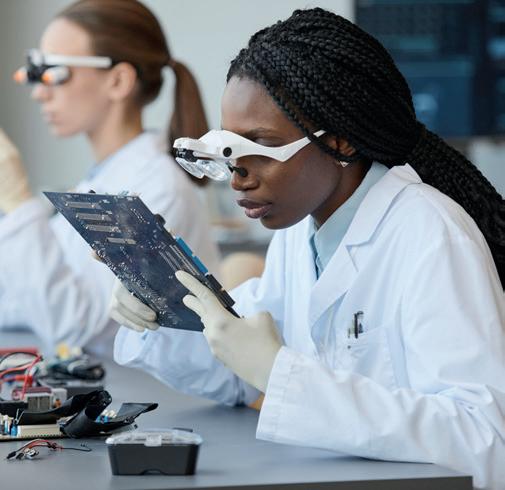
Wilkinson hopes that there will be more female engineers in the coming years. “We have to break the stereotype and show that engineering is a viable and exciting career for women,” she says. “We think differently and bring a lot to the table.”
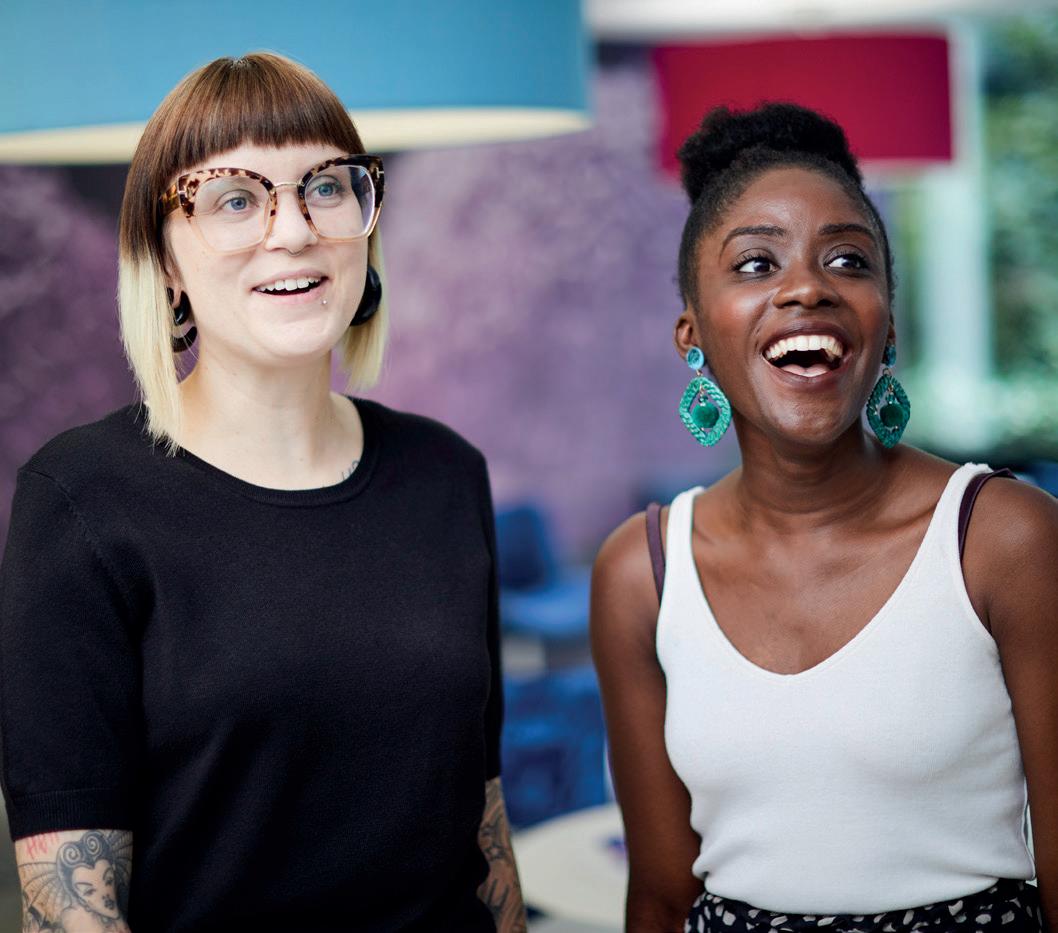
Each of our specialist teams play a vital role in supporting our goal to beat cancer. Learn more about our range of careers from pioneering research and providing reliable and accessible information, to delivering operational transformation by visiting our website.
Curious about data.
Eager to analyse it. Determined to transform it.
Together we will beat cancer
AN INDEPENDENT SUPPLEMENT FROM MEDIAPLANET WHO TAKE SOLE RESPONSIBILITY FOR ITS CONTENT 09 MEDIAPLANET Visit cruk.org/jobs or scan here
Find a purposeful career that will empower you to grow and collaborate with like-minded experts.
INTERVIEW WITH
Paid for by Cummins
Find out more at cummins.com
Tanith Wilkinson Engineering Plant Support Team Leader, Cummins
WRITTEN BY Tony Greenway
Building a gender-balanced workforce by starting with school engagement
Take a moment to imagine what a gender-balanced engineering and tech workforce would be like — how its nature would change. Explore the implications of finally addressing the longstanding and very limiting skills shortages.
Dr Hilary Leevers Chief Executive, Engineering UK
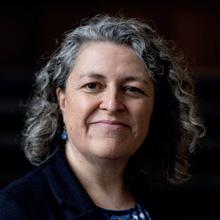
Iam happy to celebrate the progress made towards this gender-balanced vision, as the percentage of women in engineering and technology has grown by six percentage points over the last 11 years to 16.5%. However, this is still woefully short of the 48% of women in the overall workforce. We need more equal progression into the sector.
Need for gender-balanced progression
While the proportion of women starting engineering-related apprenticeships has risen to 14.2%, this is well below the 50.8% of women across all apprenticeships. Undergraduate data is similarly concerning. Only 18.5% of firstyear engineering and technology undergraduates are women, compared with 56.5% overall.
More positively, women outperform men in engineering and technology with almost half securing first-class degrees, and they have similar progression into work. Looking back on secondary education, studying maths and physics often precedes engineering. EngineeringUK found that 23% of male students taking either or both A levels, went on to study engineering or technology in higher education, but this was true of just 8% of female students.
We’ve wanted to see more young women taking maths and physics for many years, but we also need better conversion rates into engineering. Indeed, with current rates, around 115,000 more female students would need A Levels in maths, physics or both to equal the male numbers progressing into engineering at university.
Engaging schools to encourage girls
More needs to be done to cultivate girls’ appetite for STEM as well as their progression into engineering. Outreach in schools that includes, engages and inspires girls is crucial, alongside high-quality careers guidance. It’s encouraging that hundreds of organisations have pledged to collaborate on their school engagement as part of the Tomorrow’s Engineers Code, striving for that vision of a thriving, diverse and fully supplied workforce.
We also need faster change, and I hope that a positive feedback loop will pick up the pace as girls and young women see better female representation on educational pathways into engineering and technology and women flourishing in the workforce. They need to be visible to achieve this on International Women in Engineering Day — and every day.

10 AN INDEPENDENT SUPPLEMENT FROM MEDIAPLANET WHO TAKE SOLE RESPONSIBILITY
ITS CONTENT WOMENINSTEM.CO.UK
FOR
Outreach in schools that includes, engages and inspires girls is crucial, alongside high-quality careers guidance.
Get into teaching and help shape the future of women in STEM


Teaching can be a rewarding job that offers fulfilment and growth opportunities. Moreover, teachers play an important role in empowering the future women of STEM.
On my first day of teacher training, I was told that teaching was acting and to treat each lesson as a performance whereby you have to captivate your audience. I knew immediately I was in the right place,” says Rachel, a teacher who studied Science along with Contemporary Theatre and Performance.
Discovering a talent for teaching
In between acting jobs, Rachel secured a role working in a school as a cover supervisor. She enjoyed it so much that she quickly secured a permanent role.
“Several years flew by, and I was itching to become a fully-fledged teacher. Science had always been my passion in school; being on the other side of the teacher’s desk made me fall straight back in love with it. I haven’t left my love for acting behind; every year, I support the school musical. The students are gobsmacked that I’m a science teacher that can sing!”
Supportive environment in STEM
When Rachel started teaching, she felt like she had been doing it for years. “You are so supported during
your training that by the time it’s your turn to teach, you’re completely ready to take the floor. I am not what students expect a woman in STEM to be like, and they were so receptive towards me.”
As a form teacher, Rachel’s students know they go to her with any issues. “I will support them and make sure they are having a positive school experience.”
Rewards of a teaching job
“Being a teacher is such a special job,” Rachel insists. “While you will never fully know the depths you have reached in your students’ lives, they will remember you forever. You spend time with your students every day and guide them through pinnacle moments in their life; seeing them grow and develop as people is simply amazing. Your students will have ups and downs, but they know you will always be there to support them. Having that responsibility and impact is just incredible.”
One-on-one support from expert advisers is available to people who are interested in a teaching career. Dedicated advisers can offer practical advice and ways to fund training to become a teacher.
AN INDEPENDENT SUPPLEMENT FROM MEDIAPLANET WHO TAKE SOLE RESPONSIBILITY FOR ITS CONTENT 11 MEDIAPLANET
Rachel Shaw STEM teacher, Department of Education
Get matched with an adviser and get help with your teaching application. Search Get Into Teaching: getintoteaching.education.gov.uk
One-on-one support from expert advisers is available to people who are interested in a teaching career.
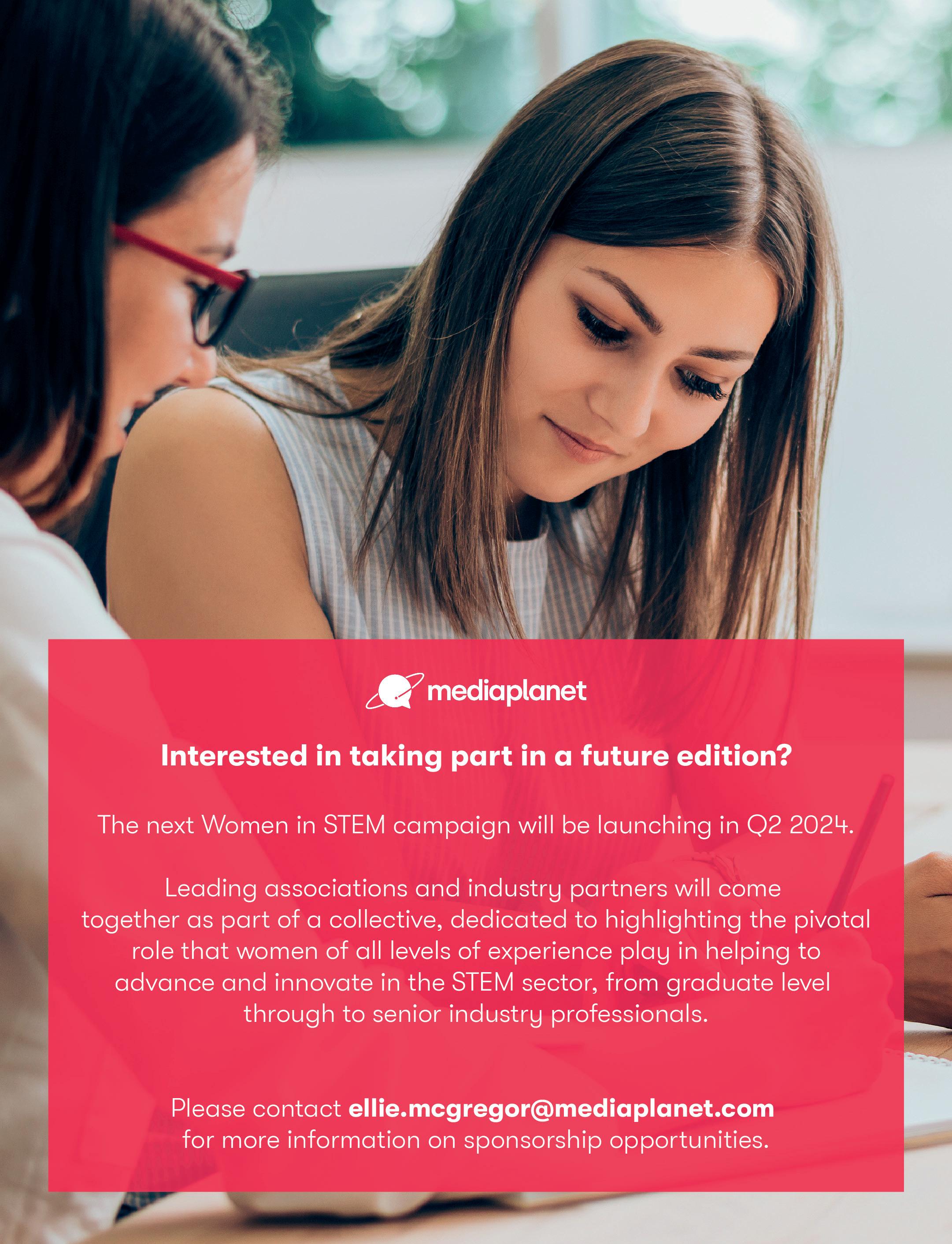
12 AN INDEPENDENT SUPPLEMENT FROM MEDIAPLANET WHO TAKE SOLE RESPONSIBILITY FOR ITS CONTENT WOMENINSTEM.CO.UK

































